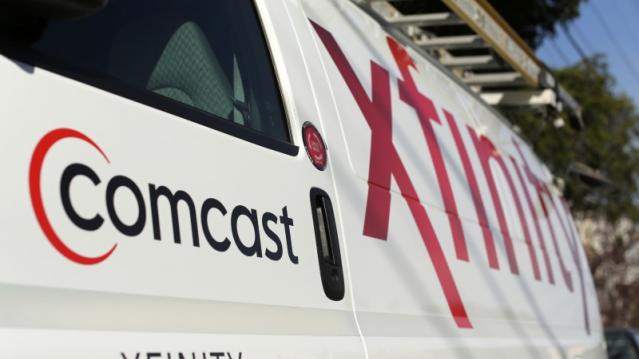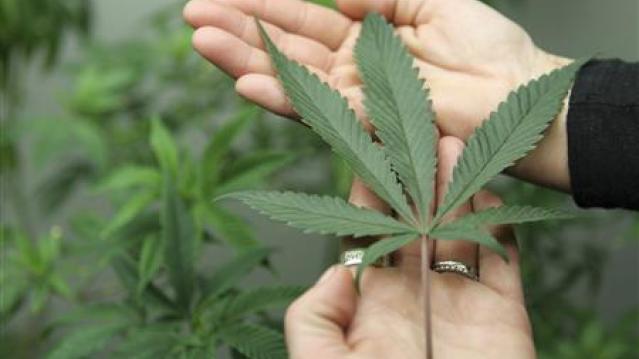Here’s the Scoop: Fun Facts for National Ice Cream Day

When President Ronald Reagan in 1984 designated the month of July as National Ice Cream Month and declared the third Sunday of July as National Ice Cream Day, he probably never could have foreseen a time when flavors of the treat included Pork Rind, Strawberry Durian or Squid.
Ice cream shops around the country will be celebrating their special day again this Sunday, July 19. Carvel stores will be offering a buy-one-get-one-free deal on any size or flavor of soft-serve cones. Friendly’s is celebrating its 80th birthday this weekend, with participating stores also offering buy-one-get-one-free deals. Baskin-Robbins is offering a free upgrade to waffle cones with double scoops during the entire month of July. It also will offer 31 percent off all its ice cream sundaes on Friday, July 31.
Related: Born in the USA: 24 Iconic American Foods
Those chains offer a wide variety of flavors, but probably nothing quite as exotic as the OddFellows Ice Cream Co. in New York City, known for formulations loaded with unusual ingredients: Edamame, Chorizo Caramel Swirl, Cornbread and Maple Bacon Pecan. OddFellows co-owner Mohan Kumar says National Ice Cream Day will be just a regular Sunday for him and his stores: “It’s a beautiful day for ice cream every day.”
As you consider indulging in a frozen snack, here are some fun facts to fuel our red hot passion for ice cream:
Who Screams for Ice Cream: California, Indiana, Pennsylvania, Texas and New York are the states that consume the most ice cream. California also produces the most ice cream—over 142,000 gallons every year. About 10.3 percent of all the milk produced by U.S. dairy farmers is used to make ice cream. The five most popular brands in the U.S. are private labels, followed by Blue Bell, Haagen-Dazs, Breyers and Ben & Jerry’s. According to the International Dairy Foods Association, vanilla is America’s favorite flavor of ice cream, followed by chocolate. And how’s this for being ice cream crazy? Ben & Jerry’s employees get three free pints a day. They also get a free gym membership.
Hard Facts About Soft Serve: Despite many headlines to the contrary, it does not look like former British Prime Minister Margaret Thatcher invented soft-serve ice cream before she became known as the Iron Lady. The honor instead goes to Tom Carvel of Carvel ice cream or Dairy Queen co-founder J. F. McCullough. In Carvel’s case, his ice cream truck got a flat tire in Hartsdale, New York, in 1934. As the ice cream started to melt, he noticed its soft, creamy consistency and began selling it right from the truck. Two years later, he opened his first Carvel shop at the site where the truck first broke down.
Related: The 9 Most Expensive Junk Foods
Why We’re All Coneheads: Italo Marchiony, an Italian immigrant, was granted a patent for waffle-like ice cream cups in New York City in December 1903. But he may not be the father of the cones we enjoy today. As the story goes, Arnold Fornachou, an ice cream vendor at the 1904 World’s Fair in St. Louis, ran out of dishes. His neighbor, a Syrian man, was selling crisp, Middle Eastern pastries called Zalabias. When rolled up, the waffle-like Zalabias made a perfect cone to hold the ice cream. The International Association of Ice Cream Manufacturers and the International Dairy Foods Association credit Ernest A. Hamwi, the pastry maker, with creating the cone, but others have also claimed credit — including Abe Doumar, another Syrian immigrant at the 1904 fair who would go on to produce the first machine to mass-produce ice cream waffle cones.
Comcast to Cut the Cord with Time Warner

Comcast is dropping its merger with Time Warner after a year of regulatory pushback, according to Bloomberg. The news wire's unnamed sources say there will be an announcement tomorrow.
In today's changing media landscape it is not really clear what the preemptive breakup of a media megacorp (formed from mere media titans) will mean for consumers, especially in the face of Verizon's push to slim down its bundled offerings, the new ala carte service from HBO and the continued expansion of Netflix's original programming. As more and more people cut the cord, the market for traditional cable TV is eroding, and more consumers opt simply for an Internet connection.
Even without that, Comcast dropping its deal probably will have no impact at all for the average cable subscriber, given the already segregated monopolies allowed individual cable companies. So, unless you own stock in either of these companies, this is pretty much just more status quo in a rapidly changing market.
Can Low Self-Control Turn You Into Edward Snowden?

Be very wary if your employer asks you to take a test and then says please put on this cap. The cap could have sensors measuring your “self-control,” which researchers at Iowa State University have connected to—cybersecurity.
Yup—this wasn’t about eating the last cookie, having sex with a stranger, or taking a hit from some unknown new drug just because your friend said it was an amazing experience. The test measures how long someone hesitates before doing something risky or wrong.
Hmm. Maybe I’ll wait a few seconds before robbing that jewelry store! If they waited, the researchers determined that the employees were considering the consequences of their actions and therefore had higher self-control than those who simply filled their duffle bag with whatever bling was in sight.
Those with higher self-control were deemed better cyber security risks than the low self-control group.
But who knows? Maybe the high group was just casing the joint and calculating how much they could carry without getting caught. Or maybe they were searching for the largest unflawed diamond in the case that could be hidden in their pocket!
So much for brainwaves.
These Students Are Making Even More Than They Expect After Graduation
College students who major in STEM fields generally know that they can make more money than their peers once they graduate, but they don’t know how much more.
Turns out, those students majoring in science, technology, engineering and math, actually have starting salaries that are higher than expected, according to a new report by the National Association of Colleges and Employers.
Engineering majors, for example, expect to earn $56,000, but actually receive 15.5 percent more than that, with starting salaries average nearly $65,000. Computer Science majors expect to make around $51,000, but receive 22 percent for an average starting salary of $62,000.
Chemistry majors have the largest gap between expectations and reality: They expect to earn an average of $39,000 but take home an average $58,000 in their first year, a 51 percent increase.
Related: The Closing of the Millennial Mind on Campus
The typical college graduate in 2014 received a starting salary of $48,000. Liberal arts and humanities majors had the lowest starting salary, with an average of just $39,000, according to NACE.
Not only do STEM majors enjoy higher salaries, but they can also expect more job security and better job prospects. All of the top 25 jobs recently compiled by U.S. News and World Report fell into either a science- or math-based discipline.
Still, not everyone has the interest or aptitude to excel in a STEM career. A third of those who begin their college career majoring in those fields end up transferring to a difference study area, according to a recent report by RTI International.
Will Obama Send a Smoke Signal About Weed?

The resignation of Michele M. Leonhart, chief of the Drug Enforcement Administration, just one day after 4/20 -- which is sort of Thanksgiving for stoners -- offers President Obama an opportunity to replace her with someone who shares his relatively benign view of marijuana.
The right appointment might also be a gift to Hillary Rodham Clinton since it would signal to younger voters that it's not just libertarian-leaning Republicans like Senator Rand Paul of Kentucky who want to decriminalize the use of pot.
Representative Early Blumenauer, an Oregon Democrat, told The New York Times that Obama should appoint someone who "understands the federal approach to marijuana isn't working."
Related: How to Stop Cyber Attacks: Let Workers Smoke Pot
The flashpoint that led to the departure of Leonhart after a 35-year career at the D.E.A. was a congressional hearing that revealed agency agents in Colombia had taken part in parties with prostitutes paid by drug cartels. But Leonhart, who has lumped marijuana in with crack, meth and heroin, found herself at odds with the President, who has called pot no more dangerous than alcohol.
“Hopefully this is a sign that the Reefer Madness era is coming to an end at the D.E.A.,” Mason Tvert, the director on communications at the Marijuana Policy Project, told Bloomberg Politics.
How to Stop Cyber Attacks: Let Workers Smoke Pot

What’s true for the government is true for business. FBI Director James Comey thinks you can’t hire top tech talent with a ban on weed. It all started in the Reagan administration, which imposed a no-hire policy for applicants who toked up within the past three years. Good luck with that.
In 2014, Comey raised the issue during a speech: “A lot of the nation’s top computer programmers and hacking gurus are also fond of marijuana. I have to hire a great workforce to compete with those cyber criminals and some of those kids want to smoke weed on the way to the interview.”
That’s not the only reason the government can’t hire competent programmers and white hat hackers. They come at a high price, there’s a shortage, and they hate red tape and bureaucratic annoyances. For some lawmakers, though, it’s easier to get lost in the weed than try to reform the federal hiring process. That’s why Gerry Connolly (D-VA) and Earl Blumenauer (D-OR) have two proposals in the House requiring info from the intelligence director on how classifying pot as Schedule 1 narcotic crimps the feds recruiting efforts.
